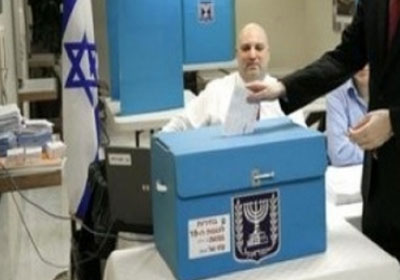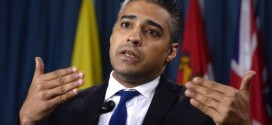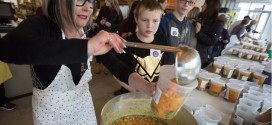By Jonathan Cook
Israel goes to the polls on Tuesday. In one sense, everything is up for grabs: this election could result either in another right-wing government led by Benjamin Netanyahu or in victory for a coalition of centrist parties distinguished chiefly by their hostility towards Mr Netanyahu.
Whatever the outcome, one thing is certain: the next government will be no more willing or able to make peace with the Palestinians than its recent predecessors.
The occupation is no longer even an issue in Israeli campaigns – or rather, the very idea of conceding a Palestinian state is so politically toxic that none of the parties has dared mention it for fear of losing votes.
The White House sounded the alarm last week. The next Israeli government, it said, must be “a partner” to yet another American-led peace process.
Washington’s desperate move appeared to be in response to a statement from the ruling Likud party indicating that Mr Netanyahu considered his 2009 speech pledging himself to Palestinian statehood now “null and void”.
Even the centre-left Zionist Union has largely avoided the Palestinian issue. Its main ad campaign, highlighting the qualities of its leader, Isaac Herzog, concentrated instead on his past in the elite military intelligence unit 8200. He knew the “Arab mentality”, intoned army chiefs who had worked with him. As a gunsight moved from Arab women shopping to a bearded man at a protest, a voice-over promised that Mr Herzog knew when to “eliminate these people”.
The anti-Arab tenor of the campaign, however, has not been confined to the occupied territories. In the centre of the right’s sights have been the 1.5 million Palestinians who live in Israel and have citizenship.
As ever, the Yisrael Beiteinu party of foreign minister Avigdor Lieberman has led the sloganeering against this one in five of Israel’s population. His “No citizenship without loyalty” campaign of 2009 has morphed in this election into the even uglier “Umm Al-Fahm to Palestine” – explicitly demanding that large Palestinian communities in Israel be exchanged for Jewish settlements.
Mr Lieberman plumbed new depths last week by calling for disloyal members of the Palestinian minority to be beheaded. With his usual immunity to paradox, he called at the same time for a Palestinian leader in Israel to be stripped of citizenship for comparing Israel’s behaviour to that of ISIL.
But Mr Lieberman’s greatest vitriol has been reserved for the Joint List, a new united front of four Arab parties running together for the first time.
The combined list was created after Mr Lieberman last year engineered the raising of the electoral threshold precisely to ensure the Arab parties could not win enough votes separately to enter the parliament.
The Joint List has been the surprise success of the campaign. Belated unity has inspired Palestinian citizens to rethink their previous reluctance to vote. Polls indicate the List could emerge as the third largest faction.
If, as seems increasingly likely, an inconclusive result forces the right and centrist parties to establish a unity government, the Joint List could even find itself declared the formal opposition.
With that status would come rare privileges: regular meetings with the prime minister and chairmanships of important parliamentary committees.
The right is far from insensitive to the danger that the Arab parties might wield a small degree of influence in a political system designed to exclude them. Mr Lieberman has labelled the Joint List a “terror organisation” and its leader, Ayman Odeh, who has distinguished himself with his commitment to Jewish-Arab cooperation, a “fifth columnist”.
Mr Netanyahu has joined the incitement too. He warned this month that shadowy “foreign groups” were financing the Zionist Union and Joint List with the aim of overthrowing his government. Israel’s future was at stake, he said, because the funding had raised “voter participation in the Arab public to unprecedented levels”.
The thrust of the right’s campaign suggests a different reading of Mr Lieberman’s move to raise the threshold last year. Then, it was widely assumed he was trying to bar the Arab parties from parliament.
Now it seems as if he may have had a more sinister goal in mind. In creating the Joint List, the Arab parties may – rather than foiling the right’s plan – have stepped into its trap.
All the Arab political movements – from socialists to Islamists, from believers in Jewish-Arab cooperation to those demanding autonomy – are now in the same camp. In previous elections the right tried to discredit the minority’s most radical politicians as extremists. Now all are being tarred in one broad stroke as traitors.
In short, this election has polarised the debate into one that pits all Jewish citizens against all Palestinian citizens, characterising the Palestinian minority as having no legitimate role in a Jewish state.
It is a message the right hopes to exploit as Israelis troop off to the polling booths.

 The Arab Democrat The Latest From The Arab World
The Arab Democrat The Latest From The Arab World






